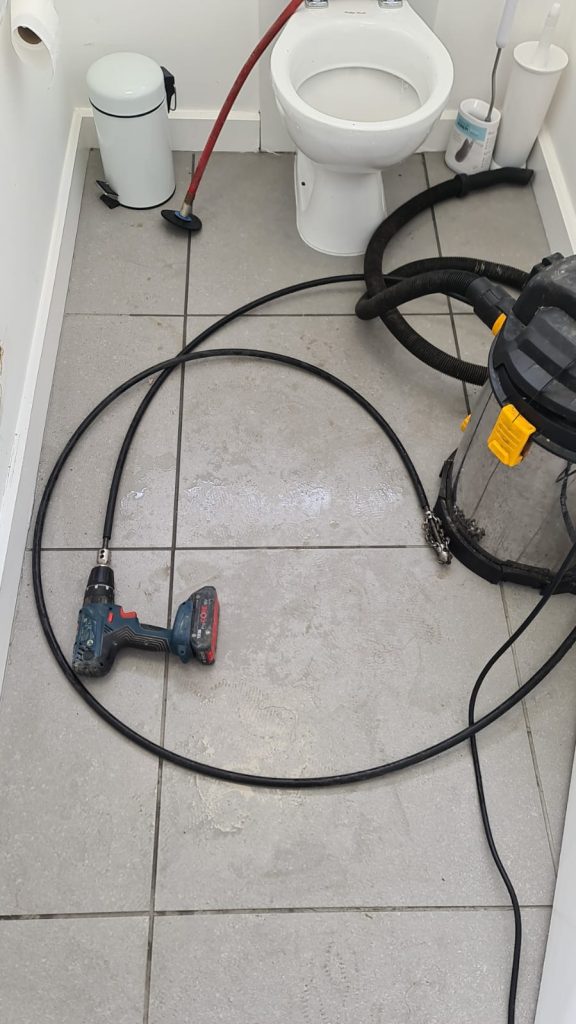How to Unblock a Drain: A Step-by-Step Guide to a Smooth-Flowing Plumbing System
When it comes to household headaches, a clogged drain is certainly at the top of the list. Dealing with slow or completely blocked drains Bristol can be frustrating and messy. Fortunately, you don’t always need to call a professional plumber to fix the issue. In this comprehensive guide, we will walk you through the process of unblocking a drain effectively and efficiently. Say goodbye to standing water and foul odors, and hello to a smoothly flowing plumbing system.

Understanding the Common Causes of Blocked Drains
Before we dive into the solutions, it’s essential to understand what causes drains to become blocked in the first place. Here are some common culprits:
1. Hair Accumulation
Hair is a frequent contributor to drain clogs, especially in showers and bathroom sinks. Over time, hair can mix with soap scum and form stubborn blockages.
2. Food Residue
Kitchen sinks often get clogged due to the accumulation of food particles and grease. These substances can solidify in the pipes and obstruct the flow of water.
3. Soap and Mineral Buildup
Soap and minerals from hard water can accumulate in pipes, creating blockages in bathroom sinks and bathtubs.
4. Foreign Objects
Sometimes, small objects or debris can inadvertently find their way into drains, causing blockages. This can include items like jewelry, children’s toys, or even tree roots in outdoor drains.
Tools and Materials You’ll Need
Before you start unblocking your drain, gather the following tools and materials:
1. Plunger
A trusty plunger is a must-have for most drain blockages. It creates pressure to dislodge clogs effectively.
2. Drain Snake
For more stubborn clogs, a drain snake or auger can be used to physically remove blockages from the pipes.
3. Baking Soda and Vinegar
A natural and chemical-free option for unclogging drains is a mixture of baking soda and vinegar. These household items can break down debris and grease.
4. Rubber Gloves
To protect your hands from dirt and grime, it’s advisable to wear rubber gloves during the process.
Step-by-Step Guide to Unblock a Drain
Now that you’ve gathered your tools and materials, let’s get started on unblocking that drain.
1. Remove Excess Water
If there is standing water in the sink or bathtub, remove as much as possible using a bucket or a cup. This will make it easier to access the drain.
2. Use a Plunger
Place the plunger over the drain and ensure a tight seal. Push and pull the plunger vigorously for about 30 seconds to create suction. This should dislodge minor clogs.
3. Try the Baking Soda and Vinegar Method
If plunging doesn’t work, mix 1/2 cup of baking soda with 1/2 cup of vinegar and pour it down the drain. Wait for 15 minutes, then flush with hot water. This can help break down blockages caused by organic matter.
4. Employ a Drain Snake
For more stubborn clogs, use a drain snake or auger. Insert it into the drain and turn the handle clockwise to break through the blockage. Pull out any debris you encounter.
5. Check the P-Trap
Underneath the sink, you’ll find a U-shaped pipe called the P-trap. Place a bucket beneath it, unscrew the connectors, and remove any debris or clogs.
6. Reassemble and Test
Once you’ve cleared the blockage, reassemble the components, and run hot water to ensure the drain is flowing smoothly.
Unblocking a drain doesn’t have to be a daunting task. With the right tools and methods, you can effectively tackle common drain blockages on your own. Remember to maintain regular drain maintenance to prevent future clogs and ensure a smoothly flowing plumbing system.
FAQs
- Can I use chemical drain cleaners to unclog my drain? While chemical drain cleaners can be effective, they can also damage your pipes over time. It’s advisable to use natural methods or mechanical tools first.
- How often should I clean my drains to prevent blockages? It’s a good practice to clean your drains with baking soda and vinegar once a month to prevent buildup.
- What should I do if none of the DIY methods work? If your drain remains blocked after trying these methods, it’s best to call a professional plumber to avoid causing further damage.
- Is there a way to prevent hair clogs in the shower drain? To prevent hair clogs, consider using a drain cover or strainer in your shower or bathtub.
- Can tree roots really cause drain blockages? Yes, tree roots can infiltrate your outdoor drains, causing blockages. If you suspect this is the issue, consult a professional blocked drain Bristol engineer for tree root removal.
By following these steps, you can save time and money by unblocking your drain on your own. Remember to take precautions and use the right tools for the job, and you’ll have your plumbing system running smoothly in no time.